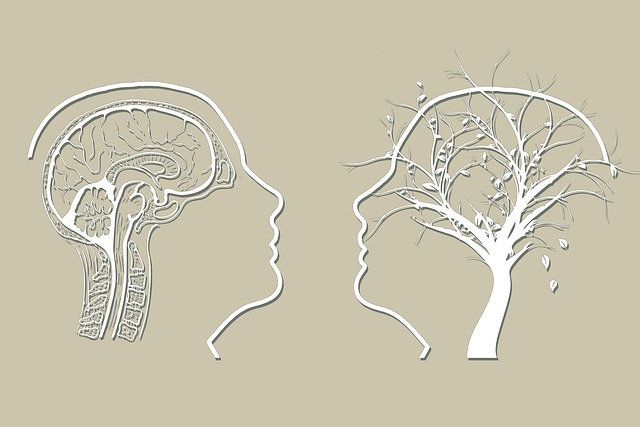For individuals with Lakewood Functional Neurological Disorder (LFND), effective mood regulation is key to managing daily challenges and enhancing well-being. This involves a multi-faceted approach including Social Skills Training, healthcare provider training, public awareness campaigns, and evidence-based treatments like Cognitive Behavioral Therapy (CBT). Lifestyle modifications, relaxation techniques, and specialized therapy like Lakewood Functional Neurological Disorder Therapy (LFNDT) are crucial. LFNDT combines therapeutic techniques to restore brain balance, optimize emotional well-being, and prevent burnout, empowering individuals with resilience and self-esteem improvements for sustainable mood regulation. Integrating self-care practices, compassion cultivation, and mindfulness, along with mental health education, ensures long-term emotional balance.
Mood regulation is a vital skill, impacting our overall well-being and daily functioning. This comprehensive guide explores various strategies to manage and enhance your mood, ranging from conventional techniques to specialized therapies like Lakewood Functional Neurological Disorder Therapy (LFNDT). Discover how LFNDT offers a unique approach to addressing mood disorders, alongside self-care practices for sustainable emotional balance. Learn effective ways to navigate and optimize your mental state in today’s fast-paced world.
- Understanding Mood Regulation and Its Significance
- Common Strategies for Effective Mood Management
- Lakewood Functional Neurological Disorder Therapy: A Specialized Approach
- Integrating Self-Care Practices for Long-Term Mood Balance
Understanding Mood Regulation and Its Significance

Understanding mood regulation is paramount, especially for individuals navigating conditions like Lakewood Functional Neurological Disorder (LFND). Mood, a complex interplay of biological, psychological, and social factors, significantly influences daily functioning and overall well-being. LFND, with its unique challenges, can disrupt emotional balance, making effective regulation strategies vital. These strategies empower individuals to manage their moods, foster resilience, and enhance their quality of life.
Social Skills Training, Healthcare Provider Cultural Competency Training, and Public Awareness Campaigns Development are key components in this process. By learning to identify and modulate emotional responses, individuals can improve their ability to cope with stress and adversity. Healthcare providers play a crucial role here, offering evidence-based treatments and tailoring strategies to individual needs. With the right support, those affected by LFND can develop a robust toolkit for mood regulation, leading to better mental health outcomes and increased participation in daily life activities.
Common Strategies for Effective Mood Management

Mood regulation is a vital aspect of maintaining good mental health and emotional well-being. Many individuals turn to various strategies to effectively manage their moods and mitigate symptoms associated with conditions like Lakewood Functional Neurological Disorder (LFND). One common approach involves therapy, which can be tailored to address specific needs. Cognitive Behavioral Therapy (CBT), for instance, is widely recognized as an effective method for managing mood disorders by identifying and changing negative thought patterns and behaviors.
In addition to therapy, lifestyle modifications play a significant role in promoting emotional well-being. Regular physical activity, adequate sleep, and a balanced diet are essential components of mood regulation. Engaging in activities that foster relaxation, such as mindfulness meditation or deep breathing exercises, can also help individuals gain better control over their moods. Public awareness campaigns focused on Mental Health Awareness play a crucial role in encouraging people to seek support and implement Emotional Well-being Promotion Techniques for proactive mood management.
Lakewood Functional Neurological Disorder Therapy: A Specialized Approach

Lakewood Functional Neurological Disorder Therapy (LFNDT) offers a specialized approach to managing and regulating mood by addressing underlying neurological imbalances. This innovative therapy is particularly beneficial for individuals dealing with conditions such as depression, anxiety, and even burnout, which can significantly impact daily functioning. LFNDT focuses on identifying and correcting dysfunction in the brain’s neural networks, aiming to restore balance and optimize emotional well-being.
By combining techniques from various therapeutic modalities, LFNDT provides a comprehensive framework for crisis intervention guidance. It equips individuals with effective burnout prevention strategies, fostering self-esteem improvement and resilience. This personalized approach ensures that each patient receives tailored support to navigate their unique challenges, ultimately promoting sustainable mood regulation and enhanced mental health outcomes.
Integrating Self-Care Practices for Long-Term Mood Balance

In the pursuit of long-term mood balance, integrating self-care practices is paramount. Lakewood Functional Neurological Disorder Therapy emphasizes a holistic approach that transcends mere symptom management. By incorporating compassion cultivation practices and mindfulness over matter principles, individuals can cultivate resilience and emotional regulation skills. These strategies empower people to navigate life’s challenges with greater equanimity, fostering a sense of inner calm and overall well-being.
Beyond individual therapy sessions, mental health education programs design plays a crucial role in this process. Equipping individuals with knowledge about the mind and body connection allows for more conscious decision-making regarding their emotional health. Through education, people gain insights into triggers, learn coping mechanisms, and develop strategies to maintain a healthy balance. This multifaceted approach ensures that self-care becomes an integral part of one’s lifestyle, promoting sustained mood regulation and improved mental resilience.
In conclusion, managing moods effectively is a multifaceted process that involves understanding and utilizing various strategies. From common techniques to specialized approaches like Lakewood Functional Neurological Disorder Therapy, individuals can find tailored solutions for long-term emotional balance. Integrating self-care practices further enhances these efforts, ensuring holistic well-being. By adopting these strategies, folks can navigate life’s challenges with resilience and grace.














